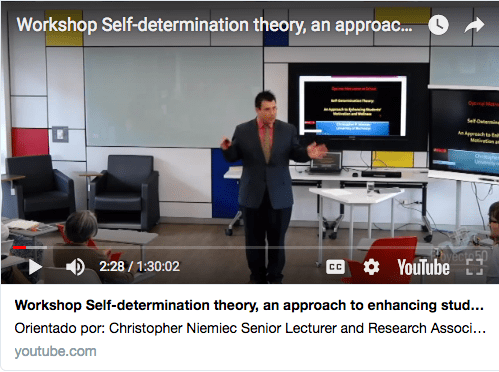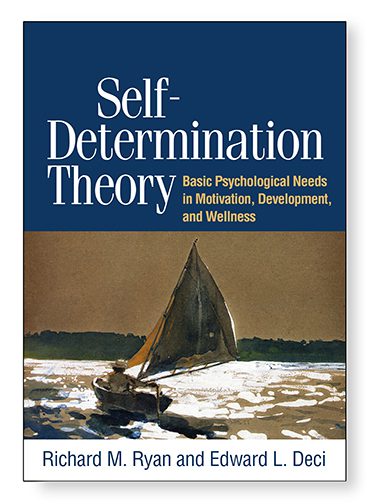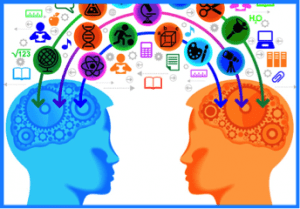
Questions about #Education #ClassroomMotivation #SelfDeterminationTheory?
Get answers from Christopher Niemiec’s recent workshop at Proyecto 50, Universidad EAFIT, Medellin, Colombia

Questions about #Education #ClassroomMotivation #SelfDeterminationTheory?
Get answers from Christopher Niemiec’s recent workshop at Proyecto 50, Universidad EAFIT, Medellin, Colombia

This long-awaited book by Richard M. Ryan and Edward L. Deci is now available around the globe!
North and South America
Use discount code: AFSDT
Click here to order
* discount code will auto-generate when using link above
UK & Europe
Use discount code: GUIL3
Click here to order
Australia and New Zealand
Use discount code: SDT20.
Click here to order
Asia Pacific
Use discount code: GUIL3
The book distributor Taylor & Francis-Asia Pacific doesn’t have a purchase website, but you can order your book via email at: marketing@tandf.com.sg and mention discount GUIL3
This book is also available on Amazon

February 13, 2017 / By Aiman Maulana /
Once again, Self-Determination Theory’s research gains attention in Gaming. What are the surprising scientific evidences on gaming, and how do the basic psychological needs tap into gaming and wellbeing.
Applying Self-Determination Theory to
Health-Behavior Interventions
June 2, 2015 9:00am to 5:00pm
Edinburgh, Scotland
International Conference Centre
 Self-Determination Theory is one of the leading psychological theories on motivation & a powerful cornerstone to building a successful health initiative, program or intervention. In this training you will…Gain a deeper understanding of SDT principles & discover precisely why SDT provides a powerful framework for: Self-Determination Theory is one of the leading psychological theories on motivation & a powerful cornerstone to building a successful health initiative, program or intervention. In this training you will…Gain a deeper understanding of SDT principles & discover precisely why SDT provides a powerful framework for: |
Learn to practically apply the SDT framework in actionable ways, helping researchers and practitioners translate theory into practice
Distinguish the SDT approach from other prominent interventions (MI, CBT, Stages of Change)
Learn how to utilize SDT in different modes of treatment delivery (including mobile health, individual, and group modalities)
Explore how SDT is synergistic with your health initiatives, program, or intervention and can help create lasting change and improved long-term health outcomes
 Expert Trainer: Expert Trainer: Jennifer La Guardia Ph.D.Dr. La Guardia is an established expert in the applications of SDT to healthcare. She has15+ years experience designing ‘live’, web-based, and mobile health interventions to promote health behavior change, manage chronic illness, and improve personal well-being. She also implements large scale interventions, designs metrics, and evaluates program effectiveness for employee and community wellness initiatives. |
May 13th 2015.
The New York Times cites self-determination theory in their article, Lawyers with Lowest Pay Report More Happiness.
“Law students are famous for busting their buns to make high grades, sometimes at the expense of health and relationships, thinking, ‘Later I’ll be happy, because the American dream will be mine,’ ” said Lawrence S. Krieger, a law professor at Florida State University and an author of the study. “Nice, except it doesn’t work.”
The problem with the more prestigious jobs, said Mr. Krieger, is that they do not provide feelings of competence, autonomy or connection to others — three pillars of self-determination theory, the psychological model of human happiness on which the study was based. Public-service jobs do.
Read more at:
http://well.blogs.nytimes.com/2015/05/12/lawyers-with-lowest-pay-report-more-happiness/
 January 11th 2014.
January 11th 2014.
A study published in the Journal of Environmental Psychology in 2010 showed that spending even just 20 minutes a day in fresh air boosts vitality that is, having both physical and mental energy.
“Research has shown that people with a greater sense of vitality don’t just have more energy for things they want to do, they are also more resilient to physical illnesses,” said Richard Ryan, professor of psychology at the University of Rochester and an author of the study.
Read more at:
http://www.nj.com/opinion/index.ssf/2014/12/opinion_outdoor_green_can_fight_the_blues.html
By Michele S. Byers
September 25th 2014.
 Studies have found that having weekends to relax not only makes us happier, but healthier, too:
Studies have found that having weekends to relax not only makes us happier, but healthier, too:
Far from frivolous, the relatively unfettered time on weekends provides critical opportunities for bonding with others, exploring interests and relaxing—basic psychological needs. -Richard Ryan, professor of psychology at the University of Rochester
One study on why people are happier on weekends found that autonomy and relatedness have a large part to play. On weekends we have more control over what we do (autonomy) and we often spend time with people we’re close to (relatedness). Compared to the external pressures many of us feel at work during the week and the weaker relationships we have with colleagues versus our friends and family, weekends tend to rate far higher than weekdays for these two things.
Read more at:
http://www.fastcompany.com/3035980/hit-the-ground-running/how-to-turn-monday-into-a-day-you-actually-enjoy
Originally reported by Belle Beth Cooper

August 9th 2013.
“R esearch has also shown similar benefits to simply being around nature. One study showed that spending time in natural settings makes us more generous and more community-oriented, a conclusion that has “implications not only for city planning but also for indoor design and architecture,” according to the study’s co-author Richard Ryan of the University of Rochester Medical Center. Another study by Dutch researchers showed that those who live within one kilometer of a park or wooded area suffer lower rates of depression and anxiety. Even if we don’t live amidst trees and greenery, we can always take a walk through them. When scaled up, this practice could have real societal consequences. “As health-care costs spiral out of control, it behooves us to think about our green space in terms of preventive health care,” saidDr. Kathryn Kotrla of the Texas A&M College of Medicine. “This highlights very clearly that our Western notion of body-mind duality is entirely false. The study shows that we are a whole organism, and when we get healthy that means our body and our mind get healthy.”
esearch has also shown similar benefits to simply being around nature. One study showed that spending time in natural settings makes us more generous and more community-oriented, a conclusion that has “implications not only for city planning but also for indoor design and architecture,” according to the study’s co-author Richard Ryan of the University of Rochester Medical Center. Another study by Dutch researchers showed that those who live within one kilometer of a park or wooded area suffer lower rates of depression and anxiety. Even if we don’t live amidst trees and greenery, we can always take a walk through them. When scaled up, this practice could have real societal consequences. “As health-care costs spiral out of control, it behooves us to think about our green space in terms of preventive health care,” saidDr. Kathryn Kotrla of the Texas A&M College of Medicine. “This highlights very clearly that our Western notion of body-mind duality is entirely false. The study shows that we are a whole organism, and when we get healthy that means our body and our mind get healthy.”
For the full story
http://www.huffingtonpost.com/arianna-huffington/hemingway-thoreau-jeffers_b_3837002.html
By Arianna Huffington
July 10th 2013.

“Edward Deci and Richard Ryan, professors at the University of Rochester and developers of Self-Determination Theory, the most respected theory of human motivation, have shown that thriving results from satisfying three motivational drives: the desire to be autonomous: to make choices that are true to one’s core, not imposed by others or one’s inner critic; to be competent: using one’s strengths and becoming skilled in life tasks; and to be connected: doing things that support others. These core drives are alive in us when it comes to taking good care of our mental and physical health, but for many people they seem to get buried and hidden from light.
There are some people like me for whom health, fitness and self-care are non-negotiable; we discovered at some point that we are not sane, creative, productive or resilient otherwise. Or at least we would be operating well below the level we want to live with. So we invented and mastered a lifestyle that puts us in the driver’s seat. We built and sustain the energy and strength to handle whatever life throws our way.”
To read more:
http://www.huffingtonpost.com/margaret-moore/dont-let-others-control-y_b_635626.html
By Margaret Moore.